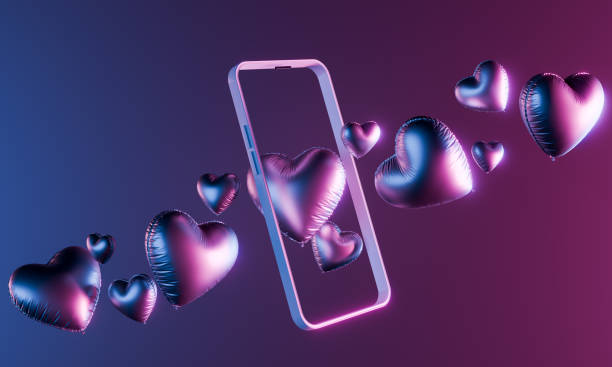Politeness used to be simple.
A greeting.
A compliment.
A clear, respectful tone.
But now, with AI-generated openers, auto-replies, and chatbots influencing how people flirt — the rules of digital politeness are shifting.
Welcome to the era where:
AI doesn’t just match you — it helps shape your message.
In this guide, we’ll explore:
- How AI is redefining modern flirting etiquette
- Why automated messages still need emotional intelligence
- Real-world examples from dating apps using AI tools
- And what psychology says about how users interpret machine-assisted charm
Let’s dive into how AI is shaping the new politeness paradigm — and why emotional awareness still matters — even when machines write the words.
The Rise of AI in Digital Flirting: A New Era of Romance?
AI has already changed how we shop, search, and even create content.
Now, it’s changing how we flirt — especially in dating apps like Tinder, Bumble, and Hinge.
Psychological Insight: People Still Want Human Connection
According to research published in Social Psychological and Personality Science , users respond more strongly to emotionally intelligent messages — whether written by humans or AI.
Why? Because connection isn’t built on who sends the message — but on how it makes someone feel .
And that means:
AI must learn to flirt with warmth — not just efficiency.
Because no matter how smart the algorithm gets…
Romance still thrives on tone , timing , and emotional resonance .
5 Ways AI Is Redefining Politeness in Digital Courtship
Here’s how artificial intelligence is reshaping what it means to be polite — and charming — online.
1. It Makes Flirtation More Accessible (Even for the Shy)
For people who struggle with confidence or social anxiety, AI-powered texting tools offer gentle, structured ways to engage without overthinking.
Example:
Instead of staring at a blank screen thinking of what to say… AI suggests:
“You have that rare kind of presence — makes me want to keep things warm between us.”
Which helps users send meaningful lines — even if they’re unsure how to start.
Because sometimes, politeness isn’t about skill — it’s about sincere intent . 2. It Helps Users Avoid Overly Bold or Offensive Lines
Many AI-driven messaging tools analyze past success patterns — and avoid lines known to trigger disinterest or discomfort.
This creates a new kind of flirtation filter , where:
- Inappropriate lines get flagged
- Too-forward jokes get softened
- Tone-mismatched messages get rewritten
Result?
More thoughtful interactions — and fewer awkward missteps.
Because AI learns from what works — and what doesn’t.
3. It Encourages Curiosity Over Compliments
Top-performing AI tools favor open-ended questions and humor — not generic praise.
Example: “You’re beautiful.”
“I wasn’t going to flirt today… but clearly, I failed.”
One feels transactional.
The other invites conversation.
And in modern dating, curiosity beats flattery every time .
4. It Promotes Emotional Safety Through Predictive Language
Some platforms use AI to detect potentially harmful or manipulative language — helping users stay safe while building chemistry.
Tools like:
- Tinder’s Smart Replies
- Bumble’s Suggested Openers
- Third-party AI writing assistants
These help users maintain politeness — even when they’re tired, stressed, or unsure what to say next.
Because real attraction builds best when both parties feel respected — not pursued aggressively.
5. It Reinvents the Role of Humor in Messaging
AI is learning which types of jokes land well — and which ones push people away.
And it’s not just about what’s funny — it’s about what’s emotionally appropriate .
Example: “Now I’m curious what else you’ve been watching…”
“I swear that sounded better in my head…”
These aren’t just witty — they’re self-aware , and that’s what users appreciate most.
Because the goal of AI in romance shouldn’t be to replace emotion…
It should be to reflect it — better.
Real-Life Examples: When AI Helped Build Real Chemistry
Let’s look at real cases where AI-assisted flirting actually worked — and didn’t feel robotic.
The Match Who Sent AI-Suggested Lines — Then Went Human
She received a message from a match using Tinder’s Smart Replies:
“Your energy seems rare — wanted to say hi back.”
She replied instantly:
“That was unexpected — and oddly good.”
From there, he stopped relying on suggestions — and started matching her tone naturally.
Why It Worked: AI provided a strong opener — but human energy kept the conversation alive.
The DM That Felt Personalized — Even If It Wasn’t
An influencer received a comment from a follower using an AI tool:
“I think my phone cracked when I saw your picture. Worth it.”
She laughed — then messaged him directly:
“Are you always this smooth — or did you practice?”
He responded:
“Actually, I used AI to craft that one — but I meant it.”
They kept talking — because the opener felt light, not forced.
Why It Worked: He acknowledged the tech — and owned his interest.
Because honesty still wins — even when assisted by algorithms.
The User Who Used AI to Avoid Ghosting
After receiving a message that felt confusing, she used an AI assistant to draft a reply:
“I hope this doesn’t ruin our vibe — but I genuinely enjoyed your opener.”
He responded warmly — and continued the chat.
Why It Worked: Instead of ignoring or sending a cold line, she used AI to build engagement , not escape.
Because sometimes, the best use of AI isn’t to impress — it’s to connect.
How to Use AI Without Losing Your Authenticity
Want to use AI in your dating life — without sounding like a bot?
Here’s how to flirt with tech — and still sound human.
1. Use AI as a Starting Point — Not the Entire Conversation
Let AI suggest the opener — then take over.
Try These:
“Suggested opener: ‘I wasn’t going to flirt today… but clearly, I failed.’”
“AI said this would work — so here’s hoping it knows better than I do.”
This shows self-awareness — and invites authenticity.
2. Keep It Light — and Let Her Respond With Energy
Avoid heavy lines or overly serious compliments.
Instead: “I promise to stop trying so hard to impress — after this message.”
“If charm were a currency, you’d be rich by now.”
Then pause — and let her lead the way.
Because AI can suggest — but only you can match her vibe.
3. Don’t Hide Behind Automation
If you’re using AI to generate replies, make sure you’re still engaging emotionally.
Don’t copy-paste blindly.
Instead, personalize each suggestion — and make it yours.
Because the brain responds to authenticity , not just cleverness.
4. Acknowledge AI If She Notices
Some users will pick up on AI-generated messages — and that’s okay.
If she says:
“Did you really say that — or did your app say it for you?”
You can reply: “Guilty as charged — but I liked it enough to hit send.”
“AI might have helped — but the charm is all mine.”
This shows humor — and ownership.
5. Know When to Step Back and Talk Like Yourself
AI is great for starters — but long-term connection comes from real energy .
So once rapport builds:
- Turn off the suggestions
- Engage organically
- Mirror her tone
- Add personal stories
- Ask meaningful questions
Because while AI can teach you how to flirt…
Real chemistry teaches you when to stop relying on scripts — and start speaking from the heart .
Frequently Asked Questions (FAQ)
Q: Can AI really help with flirting?
A: Yes — especially for openers, follow-ups, and tone alignment.
Q: Should I tell my match I used AI?
A: Only if she asks — otherwise, focus on how your message lands, not how it was written.
Q: Do women notice AI-generated messages?
A: Sometimes — but if the tone matches hers, it still works.
Q: Is it cheating to use AI in dating apps?
A: No — it’s strategy. Many use grammar tools, spellcheck, and templates — AI is just the next step.
Q: What if AI writes something inappropriate?
A: Always review suggested lines before sending — tone matters more than convenience.
Final Thoughts
AI may be changing how we flirt — but it hasn’t replaced the need for emotional clarity , timing , and presence .
Because in the world of digital romance…
What you say matters less than how you say it.
And AI is just another tool — not a shortcut to connection.
So next time you’re using AI to craft a message…
Don’t just copy and paste.
Pause. Read. Adjust.
Because the difference between charm and creepiness?
Just a few keystrokes — and a little emotional intelligence.
And sometimes, the best part of an AI-suggested opener…
Is the human who decides to keep the conversation going — with sincerity.
Not scripts.





